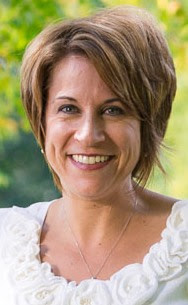By:
Torey Richardson, Health Support Professional
Working at HCS has put numerous things into
perspective, but most importantly made me realize how blessed I truly am. Often
times we take the simplest things for granted without giving it much thought.
Imagine not being able to verbally communicate your wants and needs -- and
imagine the communication barrier that can create.
While
many people are fortunate to have friends or family call
and visit or even go home for the holidays, others for various reasons are not
as fortunate. This is why forming relationships with the people who choose our
services, and also helping foster relationships is crucial. By making these
connections we are able to better support individuals by not only learning how
they communicate, but also teaching others how to communicate with them. This results in limitless possibilities.
Individuals are able to join groups within their communities, socialize with their
neighbors, and much more. I believe it is our responsibility to change the
stigma that ignorantly implies that if a person cannot verbally communicate,
then they cannot communicate at all. There
is so much that we can learn from each other, if we know how and if we are
willing to try.
For
people recently hired and for people interested in getting to know someone who
communicates differently, there are many options to help you be successful:
·
Find
out what the person likes. It is always easy to engage someone in a
conversation about common interests.
·
Learn
American Sign Language or other ways of communicating. (Heritage Christian offers
classes that teach staff how to use sign language.)
·
Ask
senior staff. They were once in the position that you may be in, finding it
difficult to communicate with someone. They may have useful tips that can help.
·
AND
GIVE IT TIME! A lot of the individuals that we support see many different staff
members come and go. The person may just be shy so give it time and eventually
they may come around.
























